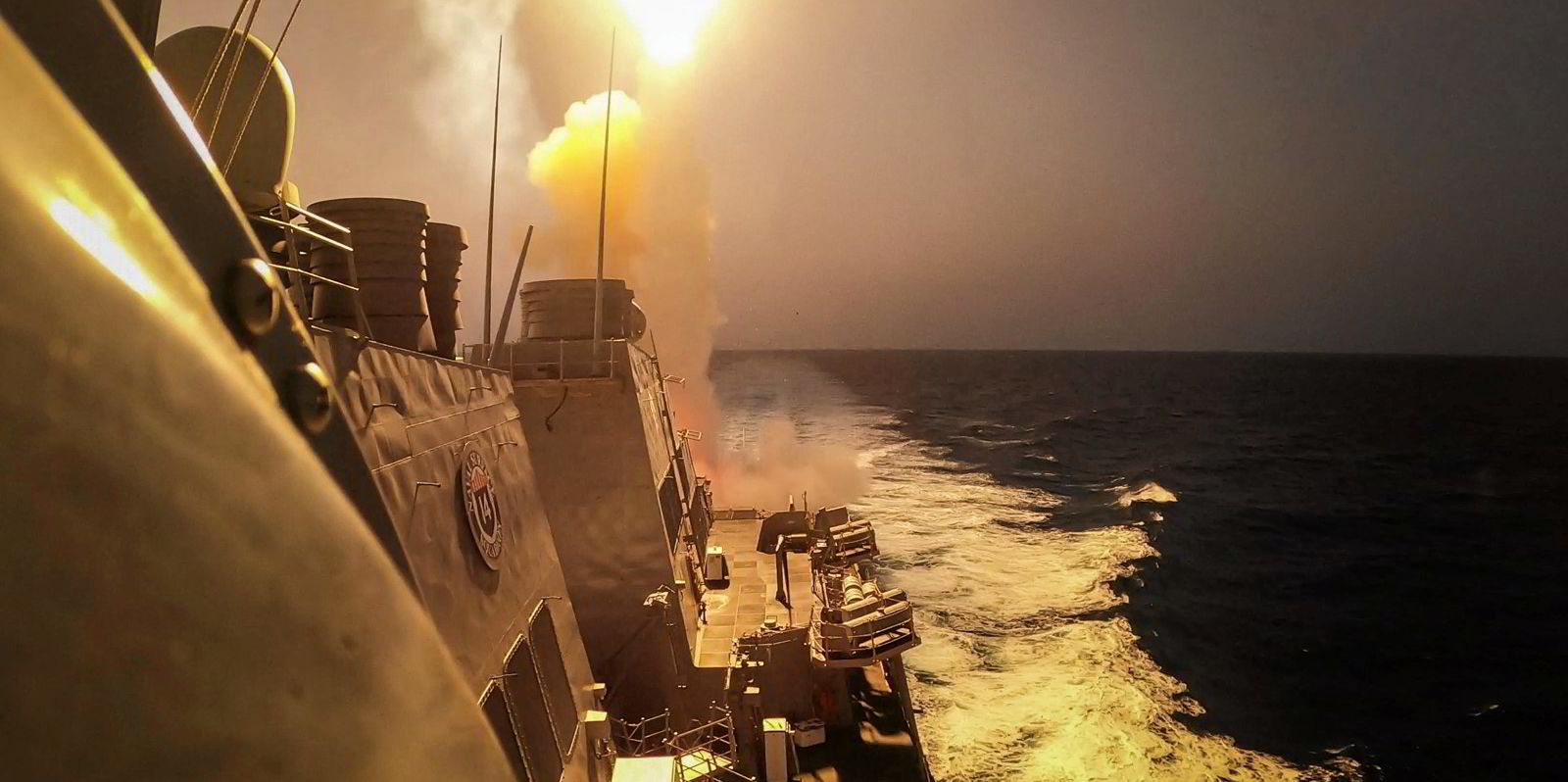The number of tankers sailing through the troublesome Bab el-Mandeb Strait has cratered in recent weeks, Fearnley Securities says.
Citing figures from Vortexa, analysts at the bank said tanker transits through the waterway have dropped 15% in the past 10 days against the 2023 average as attacks on commercial shipping in the region continue.
“Albeit this mainly is connected to Israeli-linked ships,” analyst Oystien Vaagen said in a note published on Monday.
“While much smaller for tankers/other segments compared to containers, there [are] also impacts from the Suez disruptions in this space and the risk on changes in trade patterns should be on the upside.”
He added that tanker rates had been on an upswing to the end of last week, with VLCCs, suezmaxes and aframaxes all posting gains.
On Monday, Clarksons said its fleet weighted average for VLCCs jumped 35.4% from Friday to $58,900 per day. Suezmaxes increased 0.5% to $60,600 per day and aframaxes 2.2% to $60,700 per day.
Product tankers were flat, the shipbroker said, with the fleet weighted average for LR1s moving sideways at $46,400 per day, LR2s dipping 0.1% to $58,300 per day and MRs falling 2% to $27,400 per day.
Attacks on merchant ships transiting the strait began in mid-November, when Houthi militants based in Yemen launched an attack on an Israel-linked car carrier in response to the escalating conflict between Israel and Palestine.
By early January, the number of attacks topped two dozen after the Houthis announced in December that they would target any ship heading to Israel or deemed to be working there rather than just ships with purported Israeli ownership.
Most high-profile container liners have announced that they will avoid the area and BP and Equinor said they will reroute vessels carrying their cargoes around the Cape of Good Hope.
But others remain, shipbroker Braemar said last week, with traders unwilling to pay additional costs estimated to surpass $1m for an LR tanker.





